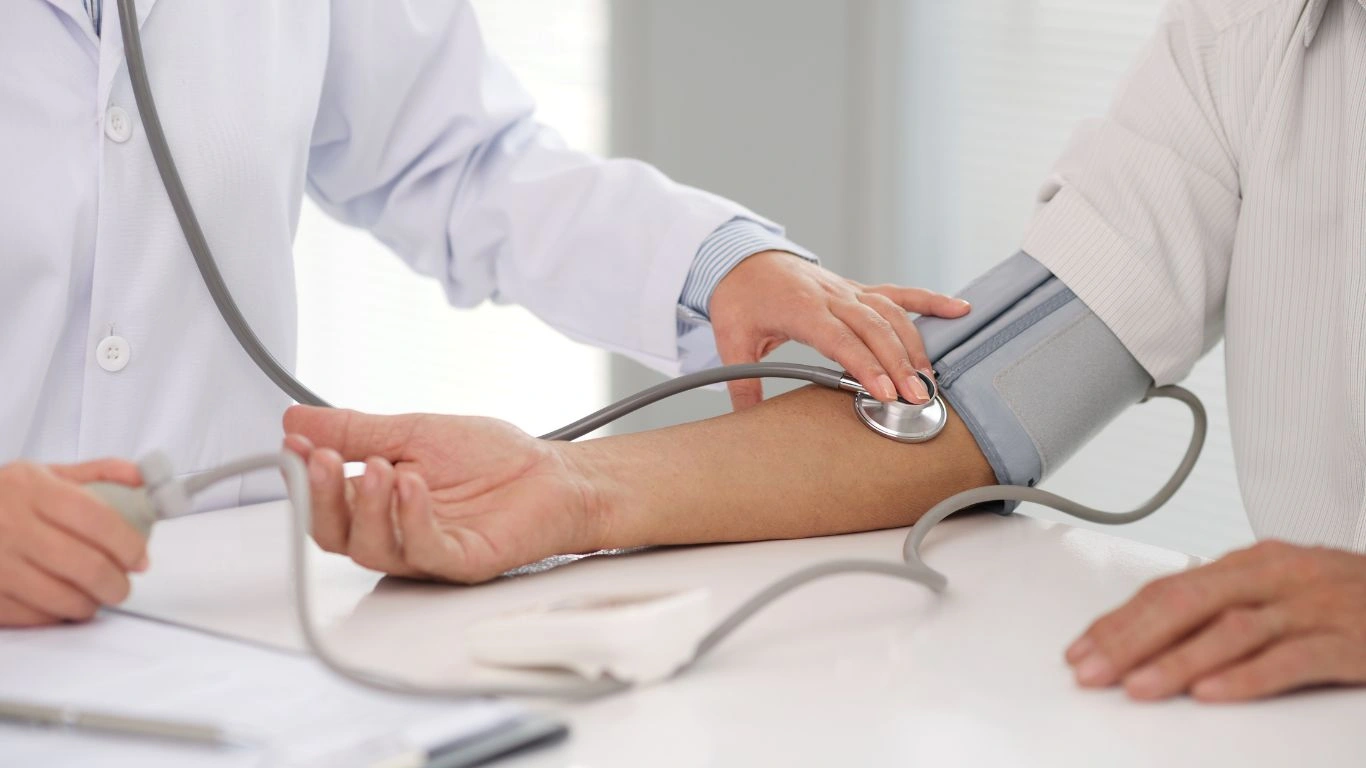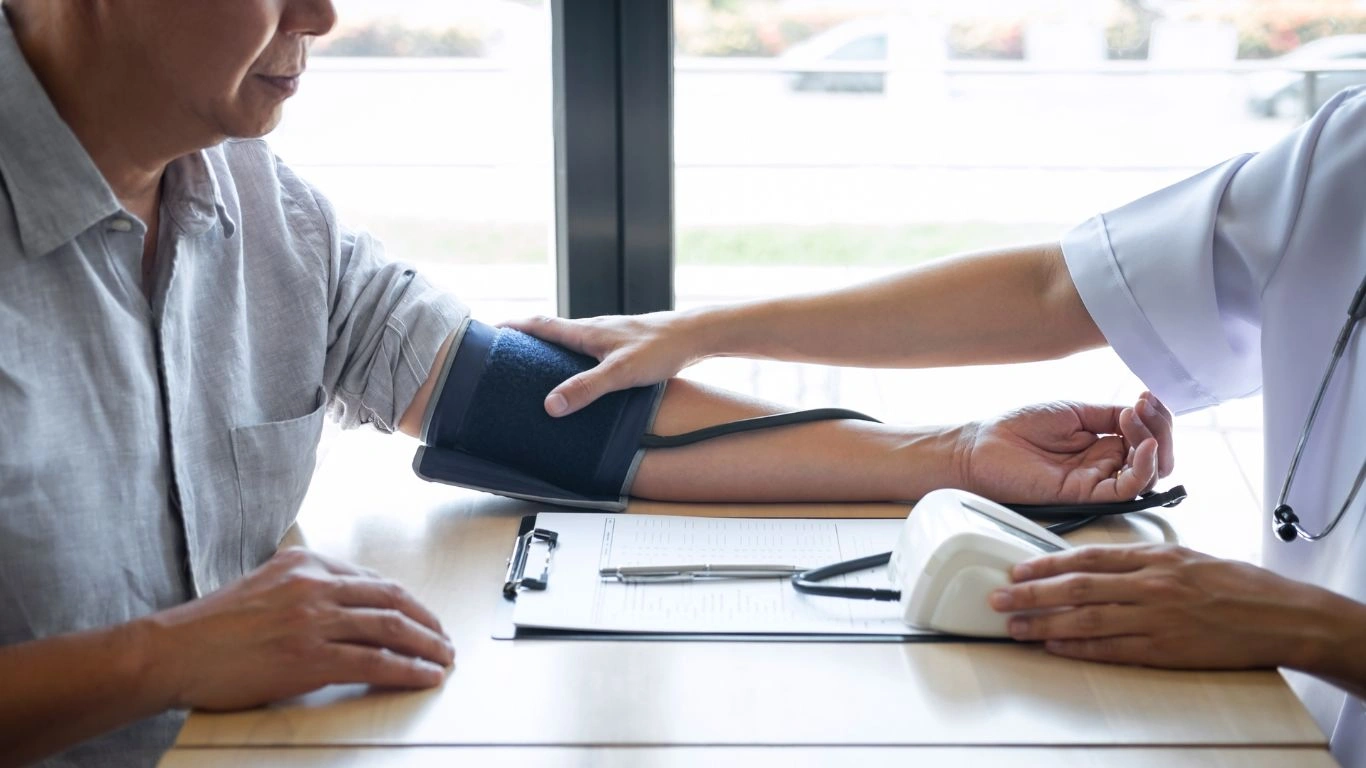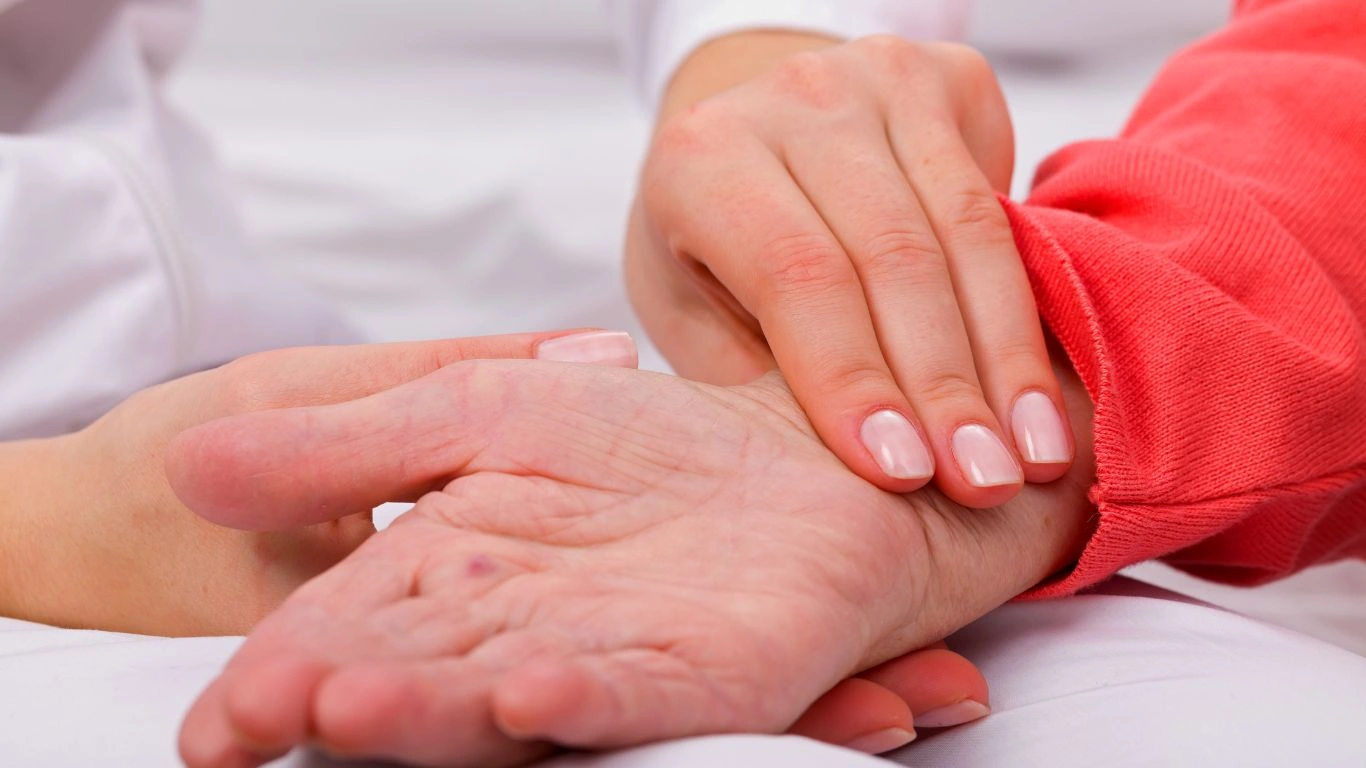How to Strengthen Blood Vessels Naturally for Better Health and Vitality
As a hypertension expert with years of experience, I’ve seen firsthand how lifestyle choices and habits can significantly impact blood vessel health. One of the most common questions I get asked is, “How to strengthen blood vessels naturally?” It’s a valid concern, as strong and healthy blood vessels are essential for maintaining a healthy circulatory system and preventing complications such as high blood pressure, heart disease, and stroke.
Whether you’re looking to improve your cardiovascular health or simply take proactive steps to maintain your well-being, the good news is that there are several natural ways to achieve this. In this article, we’ll dive deep into proven methods that can help you strengthen your blood vessels and keep them functioning optimally.
Why Blood Vessel Health Matters
Before we dive into the specifics of how to strengthen blood vessels naturally, let’s talk a bit about why blood vessel health is so crucial. Your blood vessels, including arteries, veins, and capillaries, are responsible for carrying blood throughout your body. They supply oxygen and nutrients to tissues and organs, ensuring that everything functions as it should. When blood vessels are weak, damaged, or clogged, the risk of developing conditions like hypertension (high blood pressure), atherosclerosis (narrowing of the arteries), and even heart attacks and strokes increases significantly.

What Weakens Blood Vessels?
To better understand how to strengthen blood vessels naturally, we need to first explore what weakens them in the first place. Numerous factors can contribute to the deterioration of your blood vessels, including:
- High blood pressure: Constant high pressure can damage the blood vessel walls over time, leading to rigidity and narrowing.
- Poor diet: A diet high in processed foods, saturated fats, and sugar can lead to plaque buildup, restricting blood flow.
- Lack of exercise: Physical inactivity can lead to poor circulation and weaker vessels.
- Smoking: Smoking accelerates the buildup of plaque in arteries and contributes to vessel inflammation.
- Stress: Chronic stress releases hormones that can constrict blood vessels, making them less flexible.
How to Strengthen Blood Vessels Naturally
Now that we understand why it’s essential to keep our blood vessels strong, let’s focus on practical and natural ways to do so. While medical treatments exist, these natural approaches should not be overlooked as they can provide a solid foundation for your vascular health.
1. Eat a Heart-Healthy Diet
One of the most effective ways to strengthen blood vessels naturally is by adopting a heart-healthy diet. Consuming the right nutrients can help improve circulation and reduce inflammation. Here are some foods that are especially good for blood vessel health:
- Leafy greens: Kale, spinach, and other leafy greens are packed with vitamin K, which plays a role in protecting blood vessels from damage.
- Fatty fish: Salmon, mackerel, and other fatty fish are rich in omega-3 fatty acids, which can reduce inflammation and help keep blood vessels flexible.
- Antioxidant-rich fruits: Berries, citrus fruits, and grapes are full of antioxidants that combat oxidative stress and protect blood vessel walls.
- Whole grains: Foods like oatmeal, brown rice, and quinoa provide fiber that helps lower cholesterol and improve circulation.

2. Stay Active: Exercise is Key
Physical activity is another powerful way to strengthen blood vessels naturally. Regular exercise improves circulation, reduces inflammation, and helps regulate blood pressure. Plus, staying active increases the production of nitric oxide, a molecule that helps blood vessels relax and expand, allowing for better blood flow. It’s not just about hitting the gym; activities like walking, jogging, swimming, or even yoga can have a positive effect on your vascular health.
Here’s the thing – it doesn’t have to be intense. Aim for at least 30 minutes of moderate exercise most days of the week. And if you’re new to exercise, start slow and gradually increase your activity level over time.
3. Manage Your Stress Levels
Stress is one of those silent culprits that can wreak havoc on your blood vessels. When you’re stressed, your body releases hormones like adrenaline and cortisol, which cause your blood vessels to constrict. Over time, this can lead to chronic high blood pressure and increased wear and tear on your blood vessels.
So, what can you do to manage stress? Techniques such as deep breathing exercises, meditation, mindfulness, and even spending time in nature can help lower stress levels. Exercise also plays a major role in managing stress, as it releases endorphins (the “feel-good” hormones) that promote relaxation.

Boosting Blood Vessel Health with Supplements
While a healthy lifestyle is the foundation for strong blood vessels, there are also some natural supplements that may help further support vascular health. Keep in mind that you should always consult with your healthcare provider before adding any new supplement to your routine. Here are a few supplements that may be beneficial:
- Omega-3 fatty acids: As mentioned earlier, omega-3s found in fish oil or flaxseed oil can help reduce inflammation and improve blood flow.
- Coenzyme Q10 (CoQ10): This antioxidant may help improve blood vessel function and reduce oxidative stress.
- Vitamin C: Known for its role in collagen production, vitamin C can help maintain the strength and flexibility of blood vessel walls.
- Magnesium: Magnesium plays a crucial role in regulating blood pressure and supporting healthy blood vessels.
Healthy Habits to Strengthen Blood Vessels
Strengthening blood vessels isn’t just about eating the right foods and taking the right supplements. Your day-to-day habits play a significant role in keeping your blood vessels in top shape. Let’s look at some healthy habits that can have a positive impact on your vascular health.
4. Stay Hydrated
Water isn’t just crucial for your overall health; it’s also vital for blood vessel function. When your body is dehydrated, your blood becomes thicker, and your circulation becomes less efficient. This can put extra strain on your blood vessels and increase the risk of high blood pressure.
By staying hydrated, you help maintain optimal blood flow and ensure that your blood vessels are able to function properly. Aim to drink enough water each day—generally around 8 glasses, but more if you’re active or living in a hot climate. And don’t forget that hydrating foods like cucumbers, watermelon, and oranges can also help keep you hydrated!

5. Get Enough Sleep
I can’t stress enough how important sleep is for overall health. It’s during sleep that your body has the opportunity to repair and rejuvenate itself, including your blood vessels. Chronic sleep deprivation can cause an increase in inflammation and contribute to high blood pressure, both of which can negatively affect your vascular health.
To promote better blood vessel health, aim for 7-9 hours of quality sleep each night. Establishing a bedtime routine, limiting screen time before bed, and creating a comfortable sleeping environment can help improve your sleep quality. Trust me, your blood vessels will thank you for it!
The Role of Antioxidants in Blood Vessel Health
As I mentioned earlier, oxidative stress plays a big role in damaging blood vessels. Antioxidants can help combat this process, and incorporating more antioxidant-rich foods into your diet is a fantastic way to naturally strengthen blood vessels.
6. Include More Antioxidants in Your Diet
Antioxidants help neutralize harmful free radicals in your body, reducing inflammation and protecting your blood vessels from damage. Some of the best sources of antioxidants include:
- Berries: Blueberries, strawberries, and raspberries are packed with antioxidants like flavonoids that can improve blood vessel function and reduce the risk of plaque buildup.
- Dark chocolate: Yes, you read that right! Dark chocolate is rich in flavonoids that can enhance blood vessel function and improve circulation. Just remember, moderation is key.
- Green tea: Green tea is another antioxidant powerhouse, thanks to its polyphenols that help improve blood vessel health and reduce inflammation.
- Leafy greens and cruciferous vegetables: Kale, spinach, broccoli, and other greens are not only rich in vitamins and minerals but also provide a healthy dose of antioxidants to protect your blood vessels.

7. Reduce Inflammation with Anti-Inflammatory Foods
Chronic inflammation can seriously harm your blood vessels over time. To counter this, focus on eating anti-inflammatory foods that can help reduce inflammation and protect your blood vessels. Some of the top anti-inflammatory foods include:
- Turmeric: This yellow spice contains curcumin, a powerful anti-inflammatory compound that can help protect blood vessels.
- Ginger: Ginger has been shown to reduce inflammation and improve blood circulation.
- Olive oil: Extra virgin olive oil is rich in healthy monounsaturated fats and antioxidants that can reduce inflammation and promote healthy blood vessels.
- Chia seeds: These tiny seeds are loaded with omega-3 fatty acids and fiber, both of which help reduce inflammation and support vascular health.
Understanding the Link Between Blood Pressure and Blood Vessel Health
As someone who has worked closely with hypertension patients for many years, I can’t emphasize enough how crucial it is to understand the connection between blood pressure and blood vessel health. High blood pressure is one of the leading causes of blood vessel damage, and over time, it can lead to serious complications like stroke and heart disease.
8. Manage Your Blood Pressure
It’s no surprise that managing blood pressure is a vital part of strengthening blood vessels naturally. When blood pressure remains elevated over time, it can cause the walls of your arteries to become thicker and less elastic. This reduces their ability to expand and contract properly, ultimately leading to a buildup of plaque and narrowing of the blood vessels.
To keep your blood pressure within a healthy range, focus on lifestyle changes like:
- Maintaining a healthy weight: Losing excess weight can significantly lower your blood pressure and reduce the strain on your blood vessels.
- Reducing sodium intake: Too much salt can raise blood pressure, so try cutting back on processed foods and eating fresh, whole foods.
- Limiting alcohol: Excessive alcohol consumption can raise blood pressure, so it’s important to drink in moderation, if at all.
- Exercising regularly: As we’ve discussed, physical activity is key in maintaining a healthy blood pressure level and improving circulation.

9. Quit Smoking
Smoking is a major risk factor for high blood pressure, heart disease, and poor blood vessel health. The chemicals in tobacco can damage the walls of your blood vessels, causing them to become stiff and less effective at delivering blood. Additionally, smoking increases your risk of developing plaque buildup, which can lead to narrowed arteries.
If you smoke, quitting is one of the best things you can do for your vascular health. While it can be tough, the benefits of quitting are immense, and your blood vessels will start to repair themselves within days of quitting. Your heart and blood vessels will thank you in the long run!
Holistic Approaches to Blood Vessel Health
While adopting healthy habits, such as eating a nutritious diet and exercising regularly, is crucial for strengthening blood vessels, there are also some more holistic approaches you can take to further enhance your vascular health. These approaches can complement the lifestyle changes we’ve discussed so far, helping you support your blood vessels in the long term. In this section, we’ll explore some of these natural methods and how they can be incorporated into your daily routine.
10. Herbal Remedies to Strengthen Blood Vessels
Herbs and plants have been used for centuries to promote overall health and well-being, and many of them offer specific benefits for blood vessel health. While they’re not a substitute for medical treatment, incorporating certain herbs into your daily routine can be a great way to support your blood vessels naturally. Some of the most effective herbs for strengthening blood vessels include:
- Hawthorn: This herb has been traditionally used to improve circulation and protect the cardiovascular system. It may help strengthen blood vessels, lower blood pressure, and improve blood flow.
- Ginkgo Biloba: Known for its ability to improve circulation, Ginkgo Biloba can help increase blood flow to the brain and other vital organs, which is essential for maintaining healthy blood vessels.
- Garlic: Garlic is well-known for its ability to improve heart health. It helps reduce inflammation and may contribute to better circulation by promoting the relaxation of blood vessels.
- Cayenne Pepper: This spicy herb contains capsaicin, which can stimulate blood circulation and improve the flexibility of blood vessels. It’s also known to help with reducing high blood pressure.
Adding these herbs to your diet can be as simple as taking herbal supplements or incorporating them into your meals. For example, try adding garlic to your cooking or drinking hawthorn tea to take advantage of its cardiovascular benefits.

The Importance of Mental Health for Blood Vessel Health
We’ve touched on stress management as a key factor in blood vessel health, but it’s important to delve deeper into how mental health can affect your blood vessels. Stress, anxiety, and even depression can have a profound impact on your vascular health, as they can lead to elevated cortisol levels and constricted blood vessels, increasing your risk for high blood pressure and other cardiovascular issues.
11. Practice Mindfulness and Meditation
Mindfulness and meditation have been shown to reduce stress and promote relaxation, which, in turn, can support blood vessel health. When you practice mindfulness, you train your mind to focus on the present moment, reducing the body’s stress response. Studies have found that mindfulness techniques can help lower blood pressure and improve circulation by decreasing the amount of cortisol (the stress hormone) circulating in your bloodstream.
Starting with just a few minutes of deep breathing or guided meditation each day can help lower your stress levels and positively impact your blood vessels. If you’re new to mindfulness, try starting with short sessions and gradually increasing your practice as you become more comfortable.
12. Emotional Well-Being and Blood Vessel Health
Don’t overlook the importance of emotional well-being when it comes to blood vessel health. Emotional stress can be just as harmful as physical stress. That constant feeling of worry, tension, or even unresolved emotional trauma can lead to chronic inflammation and blood vessel damage. Building emotional resilience through self-care practices and positive social connections is essential for keeping your blood vessels in good condition.
Taking time for activities you enjoy, staying connected with loved ones, or even seeking support from a therapist can help you maintain a healthy emotional balance. These practices help lower stress levels and can enhance your body’s ability to repair and strengthen its blood vessels.

Monitoring Your Blood Vessel Health
As you take steps to strengthen your blood vessels naturally, it’s important to monitor your progress to ensure that you’re on the right track. Regular check-ups with your healthcare provider are a key part of managing your vascular health. Keeping an eye on your blood pressure, cholesterol levels, and other cardiovascular markers can help you understand how well your blood vessels are functioning and if any adjustments need to be made to your lifestyle.
13. Regular Health Screenings
Getting regular health screenings is essential for catching any potential issues with your blood vessels early on. Your doctor can help monitor your blood pressure and perform tests to check for other indicators of cardiovascular health, such as cholesterol levels and glucose levels. These screenings allow you to take action before a problem becomes more serious.
In addition to doctor’s visits, you can also monitor your own blood pressure at home using a blood pressure cuff. Keeping track of your readings will help you stay informed about your blood vessel health and let you know if any adjustments to your lifestyle are needed.
14. Understand the Risk Factors
Understanding your personal risk factors for blood vessel damage is another important step in strengthening your vascular health. Family history, age, and lifestyle choices can all influence your risk of developing cardiovascular problems. If you have a family history of hypertension or heart disease, you may need to take extra precautions to protect your blood vessels.
Even if you don’t have a family history of these conditions, it’s still important to stay mindful of the lifestyle factors that can affect your blood vessel health. This includes avoiding smoking, maintaining a healthy weight, managing stress, and getting regular exercise.
References & Disclaimer
References:
- HealthUsias – Learn more about hypertension and cardiovascular health.
- Natural Ways to Strengthen Blood Vessels – A detailed guide on maintaining healthy blood vessels.
Disclaimer: The information provided in this article is for informational purposes only and should not be considered medical advice. Always consult with your healthcare provider before making any changes to your diet, exercise routine, or taking new supplements. The advice shared in this article is based on my experience as a hypertension expert, but it’s important to tailor any changes to your individual needs in consultation with your healthcare team.

Dr. Gwenna Aazee is a board-certified Internal Medicine Physician with a special focus on hypertension management, chronic disease prevention, and patient education. With years of experience in both clinical practice and medical writing, she’s passionate about turning evidence-based medicine into accessible, actionable advice. Through her work at Healthusias.com, Dr. Aazee empowers readers to take charge of their health with confidence and clarity. Off the clock, she enjoys deep dives into nutrition research, long walks with her rescue pup, and simplifying medical jargon one article at a time.







